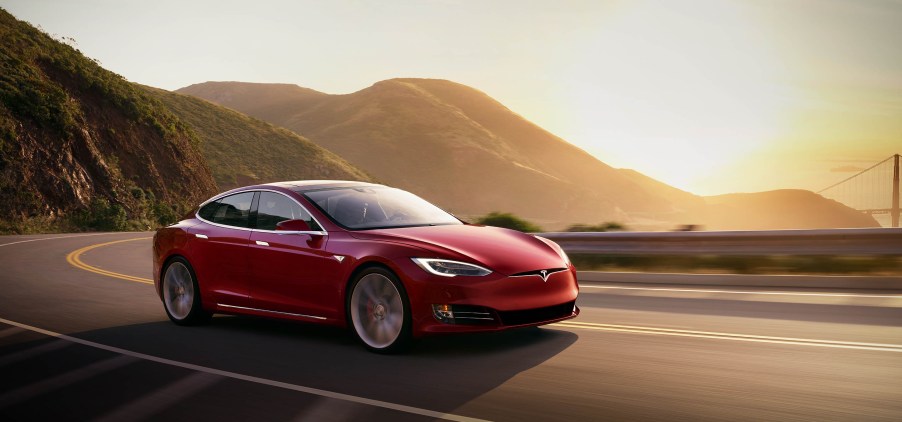
Why Does Tesla Struggle to Connect with Women Buyers?
The age of electric vehicles (EVs) is here. There are some great EVs on the market, including those from Tesla, with many more on the horizon. Most automakers have committed to going all-in on plug-in cars moving forward.
Why then is a company like Tesla struggling to connect with women buyers?
Tesla is feeling the pressure to boost sales amidst investor worries that interest in their EVs is waning. Invested in its battery-powered cars, the company is hoping to spark a trend with them as popular alternatives to standard combustion engine vehicles.
The good news was that Tesla’s second-quarter sales exceeded expectations according to analysts. It could be that people were buying a Tesla before its $7,500 federal tax credit for electric car purchases lowered by half on July 1st. Still, it was a step in the right direction.
The bad news?
The research revealed that women are not as likely to buy Tesla as men.
Practicality and Price
Despite claims by Musk in June that Tesla sales are “absolutely not” lacking, the company needs to appeal to every segment of its audience if it wishes to turn a profit. That means the company will have to make changes to appeal to women buyers
According to analysts, concerns about being stranded when the battery dies, the high price tag, and the abrasive machismo of Elon Musk, Tesla’s CEO, are all factors in why women aren’t as interested in Tesla EVs.
A recent Cars.com survey revealed that over 60% of women are the decision-makers when it comes to purchasing vehicles. And each woman in that percentage has her own set of needs and motivations when selecting a new car. Including a car that can fit into her or her family’s budget.
Tesla isn’t keeping up with the competition when it comes to selling to women. In 2019’s first quarter, only 31% of Tesla vehicles were registered by women as opposed to 69% registered by men according to Edmunds.
When Tesla sales were compared to other luxury car brands in that time frame according to Edmunds:
Tesla: 69% men – 31% women
Acura: 56% men – 44% women
BMW: 60% men – 40% women
Cadillac: 58% men – 42% women
Lexus: 51% men – 49% women
Lincoln: 56% men – 44% women
Mercedes-Benz: 57% men – 43% women
Tesla: 69% men – 31% women
Porsche with 72% men and 28% women and Genesis with 74% men and 26% women did worse than Tesla but they also offer niche lineups.
While some women have embraced Tesla, it’s facing some key perception problems. There’s the worry that electric vehicles might not be as reliable or convenient with the regular need to charge them to keep from being stranded somewhere.
Studies show that women tend to place more importance on the cost of ownership and practicality when shopping for a new car. Some women aren’t as swayed by macho-sounding slogans like some used by Tesla to invoke images of aggressive, powerful driving.
Electric Vehicle Problems?
Perhaps the problem in selling to women buyers isn’t the brand. According to Rebecca Lindland, auto analyst and founder of RebeccaDrives.com, “I don’t know that it’s a Tesla problem as much as an electric vehicle problem.”
When looking at Tesla’s popular EV competition, their results with women are pretty similar. The Chevrolet Bolt had a 69% men – 31% women split on registration like Tesla. The Nissan Leaf’s numbers were 66% men – 34% women.
Unlike its competitors, Tesla doesn’t have a line of gas engine vehicles to fall back on for profits. Now, it only sells electric cars.
The amount of misinformation about electric cars also works against them. Many believe that they have to install a high-powered outlet at home to charge their electric vehicle. Others think they have to pay several hundred dollars for a special charging unit.
Elon Musk
There’s a close association between Tesla and its CEO Elon Musk. Admired for his brilliance, Musk’s particular persona and swagger often appeal to men more than women. Recently Musk stated that it’s a “basically financially insane” decision for anyone to buy a regular vehicle as opposed to an EV with self-driving capabilities.
While his bravado can be unappealing for men and women alike, he has also pointed out the strong federal vehicle safety ratings Tesla has received as a good reason to buy.
Advertising and Education
“Tesla does not advertise or pay for endorsements. Instead, we use that money to make the product great,” said Musk tweeted recently.
The company has never spent a dime on advertising. But many think it’s time they reconsidered that policy. A day may come when Tesla needs to appeal to the masses including women. Advertising and holding events that allow them to educate potential buyers on what Tesla has to offer may help them appeal to more women buyers. It may draw more male buyers as well.
In finding ways to market to women, Tesla may be able to improve their sales and draw new interest from both camps. Many fans and Tesla enthusiasts believe that if more people knew what Tesla EVs had to offer, including for women and families, many more people would be driving them on the roads today.


